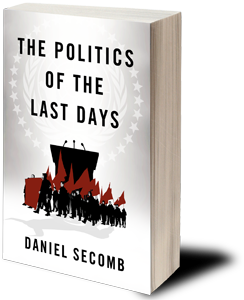Every five years the Netherlands conducts a study to determine how people die in the Netherlands and whether or not there are concerns with the euthanasia law.
The data from the 2015 study concerning ending-of-life decisions in the Netherlands was recently published. In 2015 there were 7254 assisted deaths (6672 euthanasia deaths, 150 assisted suicide deaths, 431 termination of life without request) and 18,213 deaths whereby the medical decisions that were intended to bring about the death.
The 2010 Netherlands study of the euthanasia law was published in the Lancet July 11, 2012.
According to the Netherlands 2015 official euthanasia report there were 5561 reported assisted deaths in 2015 and yet the data from the study indicates that there were 7254 assisted deaths in 2015. Therefore, there were 1693 unreported assisted deaths (approximately 23%) in 2015.
The 431 terminations of life without explicit request, was up from 310 in 2010.
Let me make this clear. In almost every country, terminations of life without explicit request are considered homicide. Recently an Ontario nurse was sentenced to 25 years in prison for killing 8 nursing home residents in Southern Ontario.
Euthanasia deaths continue to increase
Based on the five year interval reports:
- In 2005 there were 2425 assisted deaths (20% were not reported and 550 deaths were without explicit request).
- In 2010 there were 4050 assisted deaths (23% were not reported and 310 deaths were without explicit request).
- In 2015 there were 7254 assisted deaths (23% were not reported and 431 deaths were without explicit request).
Recent Netherlands euthanasia stories:
In January 2016, euthanasia was extended to people with severe dementia in the Netherlands.
A study published in the Journal of Psychiatry (Feb 10, 2016) concerning euthanasia for psychiatric reasons in the Netherlands uncovered significant concerns. According to researcher Scott Kim:
…in one EAS case, a woman who died by euthanasia was in her 70s without health problems had decided, with her husband, that they would not live without each other. After her husband died, she lived a life described as a “living hell” that was “meaningless.”
A consultant reported that this woman “did not feel depressed at all. She ate, drank and slept well. She followed the news and undertook activities.”
In May, the Netherlands euthanasia clinic lethally injected an otherwise healthy woman who was sexually abused as a child.
In October, the Netherlands government stated that it was planning to extend euthanasia to people who are not sick or dying but claim to have lived a “completed life.”
In November, a Dutch journalist reported that he was writing a book about his brother who died by euthanasia based on chronic alcoholism.
In January 2017, a Regional euthanasia Review Committee decided that a forced euthanasia on a woman with dementia, where the doctor sedated the woman by putting the drugs in her coffee and then having the family hold her down for the lethal injection, found that the rules were not followed but the euthanasia was done in “good faith.”
It must be noted that a group of Dutch physicians oppose euthanasia for dementia and the Dutch Medical Association oppose changing the law to permit euthanasia for “completed life.”
Purchase the Euthanasia Deception documentary and show it in your community.
The euthanasia lobby argue that euthanasia should legalized to regulate and control a practice that happens already. They also claim that euthanasia can be controlled and there is no proof that a slippery slope or incremental extensions will occur.
The latest data from the Netherlands proves that, after legalization, covert euthanasia continues to occur, that regulations, such as the requirement to report all assisted deaths, will be ignored and euthanasia will continue to increase and extend to more human conditions.
A practical slippery slope exists and the Netherlands experience with euthanasia clearly proves it.
Source: Euthanasia Prevention Coalition
 Register your interest for Daniel Secomb's new book, "Politics of the Last Days"
Register your interest for Daniel Secomb's new book, "Politics of the Last Days"
Daniel's new book explores the integral and fascinating role that politics will play in the end times.
He demonstrates that political philosophy is actually underpinned by biblcal principles and that by examining the political history of the past can give us a fascinating glimpse into how Biblical end times events will unfold.
Be sure to sign up with your name and email address to be notified of updates and the upcoming release date of the book.


















